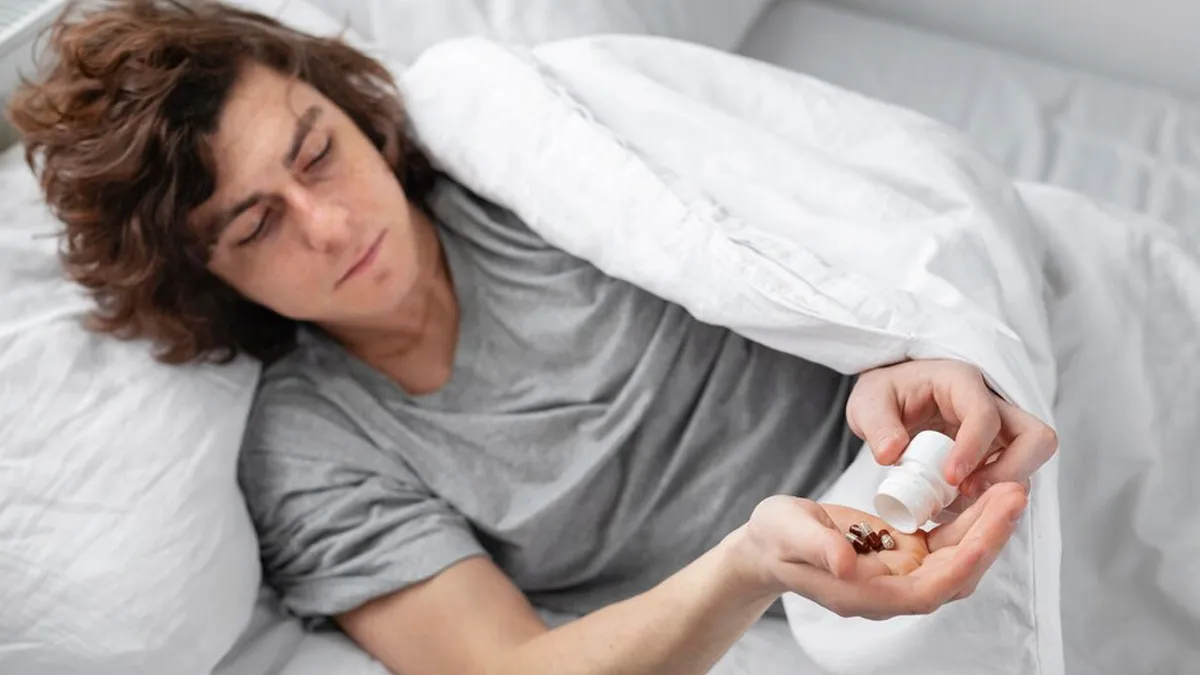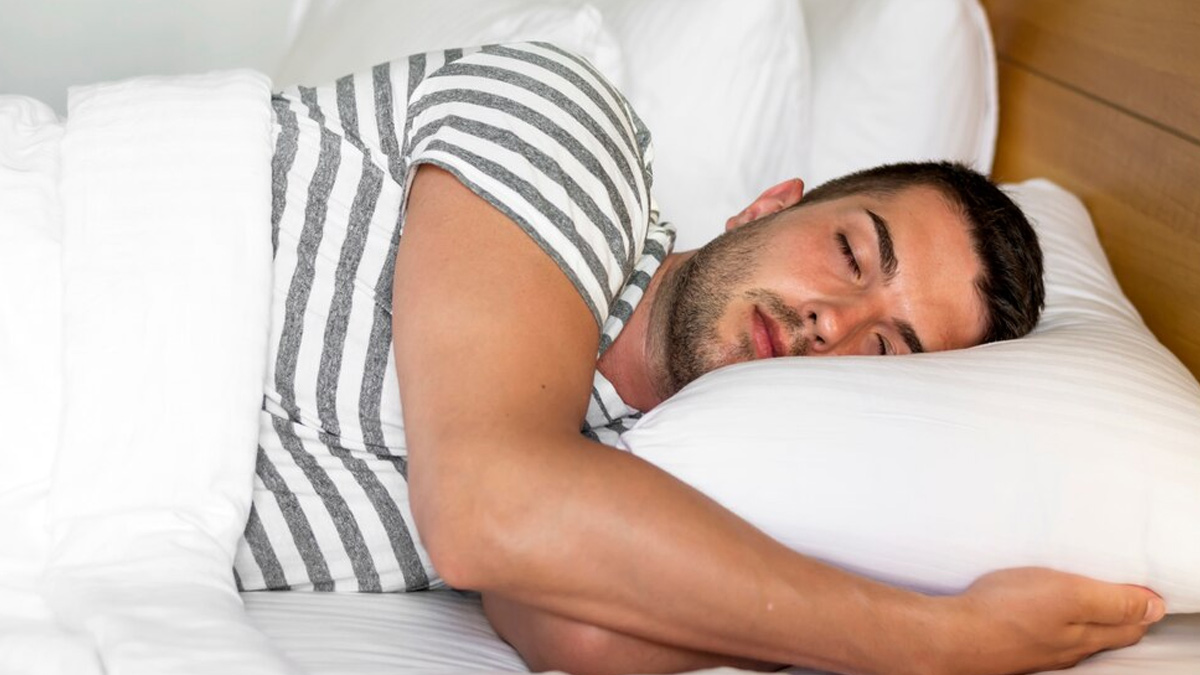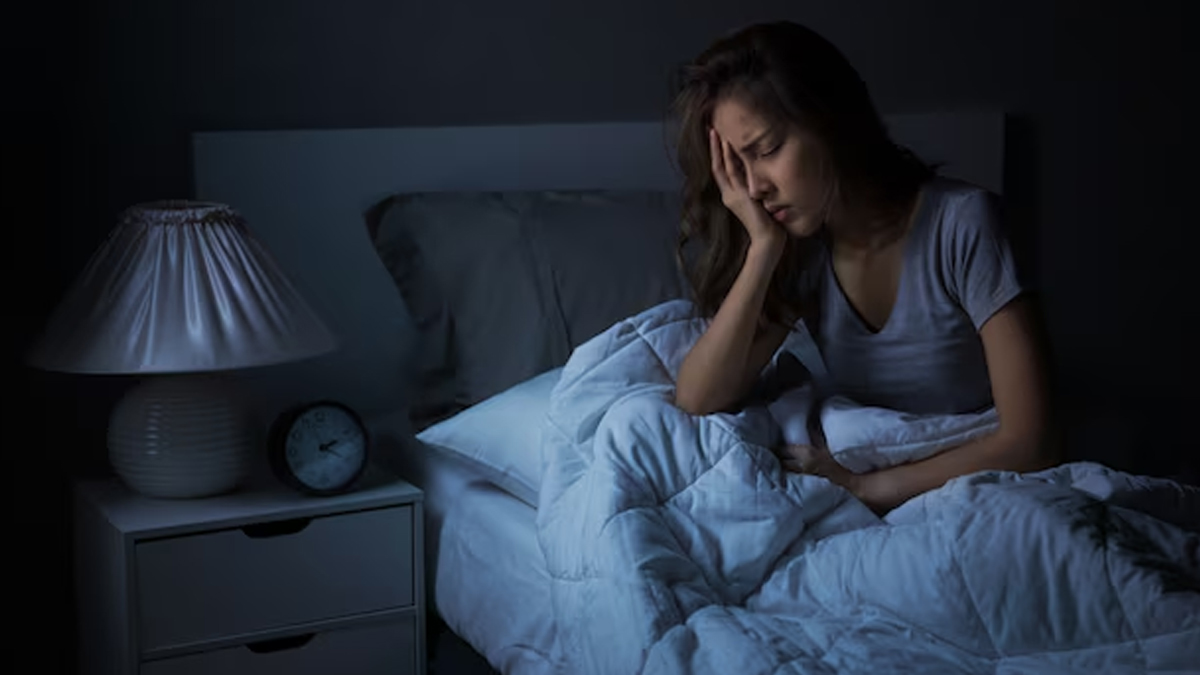
Waking up in the morning without a good night's sleep can be frustrating, making your everyday tasks difficult to manage. Lifestyle changes and cognitive behavioural therapy are usually considered first treatment approaches, but some turn to medications for relief. But are the medications safe to use in the long run? To answer your questions, we spoke to Dr VNB Raju, Consultant Pulmonology, Banjara Hills, Hyderabad, who explained the impact of medications for insomnia treatment.
Table of Content:-
Know Your Sleep Medications

Prescription sleep drugs and over-the-counter remedies are the two main categories of medications prescribed for insomnia. "The doctor may prescribe you medications with options ranging from melatonin receptor activators to benzodiazepines, whereas store-bought options contain melatonin supplements, which aim to induce drowsiness," said Dr Raju.
If you aren't witnessing improvements after making behavioural adaptions or therapy, medication might be an option. However, it is important to remember that medications can have side effects. Hence it is important to make lifestyle changes and practise meditation to improve sleep quality.
All sleep aids work differently. For example, benzodiazepines help calm the brain to help you relax, whereas melatonin supplements help regulate your wake and sleep cycles. However, no treatment is a single solution for everyone and each approach includes pros and cons.
Also Read: Should You Really Take Melatonin Without A Doctor's Approval?
Benefits of Sleep Medications

"Medications can immediately relieve those suffering from acute insomnia. These drugs can temporarily alleviate distress and fatigue from sleep deprivation by facilitating sleep onset and extending its duration," added Dr Raju.
For people grappling with substantial stress, jet lag from travel, or transient interruptions, sleep aids can be a brief solution. Moreover, certain medications may be prescribed for individuals with co-occurring conditions like anxiety or depression that exacerbate insomnia.
Risks and Limitations

While medications can help, their usage is not risk-free. One major concern is the potential for reliance. Some drugs, especially benzodiazepines, greatly risk addiction and tolerance. This means that higher amounts over time may be necessary to duplicate initial effects. This can initiate a cycle of reliance difficult to break. According to the Journal of Clinical Medicine, insomnia medication should not be used daily for durations exceeding three weeks.
Another issue is the side effect profile. "Common side effects from sleep pills include drowsiness, dizziness, and impaired thinking. In older adults, these drugs may increase the risk of falls and broken bones. In addition, medications that stay in the body the next day can impair driving or other tasks that need alertness, posing safety risks," explained Dr Raju.
Also Read: How to Tell If You Have Insomnia or Just Trouble Sleeping: Expert Insights
Special Considerations for Long-Term Use

People with chronic insomnia require a more comprehensive treatment approach rather than solely relying on medications. Long-term use of sleep aids is generally not recommended unless under strict medical oversight.
"Prolonged use can mask underlying problems, like sleep apnoea, depression, or other medical conditions, which need targeted intervention. Moreover, abruptly stopping some sleep medications can lead to withdrawal symptoms, including rebound insomnia, making it essential to taper off under a doctor's guidance," said Dr Raju.
Alternatives to Sleep Medications
For those wary of sleep aids, there are alternative treatments to consider. Here are some listed by Dr Raju:

- Cognitive Behavioral Therapy for Insomnia (CBT-I): This evidence-based therapy addresses the underlying causes of insomnia, such as negative thought patterns and poor sleep habits.
- Sleep Hygiene Practices: Simple changes like maintaining a consistent sleep schedule, reducing caffeine intake, and creating a calming bedtime routine can significantly improve sleep quality.
- Relaxation Techniques: Mindfulness meditation, deep breathing exercises, and progressive muscle relaxation can help reduce stress and promote better sleep.
- Lifestyle Modifications: Regular exercise, a balanced diet, and managing underlying medical conditions can also play a critical role in improving sleep.
- Light therapy: This will be beneficial for treating some groups of people with insomnia, especially those with jet lag and unable to adjust to timings.
Bottomline
Dr Raju concluded, "While sleep medications judiciously administered with oversight offer temporary relief, they fail to treat the basis and shouldn't replace healthier habits and guidance. Many can experience restorative nights without perpetual reliance by addressing triggers and incorporating guidance-backed adjustments. As a pulmonologist and sleep specialist, I encourage patients to seek personalised medical advice and explore a range of treatment options. With the right guidance and commitment, restful nights are within reach."
[Disclaimer: This article contains information provided by an expert and is for informational purposes only. Hence, we advise you to consult your professional if you are dealing with any health issue to avoid complications.]
Also watch this video
How we keep this article up to date:
We work with experts and keep a close eye on the latest in health and wellness. Whenever there is a new research or helpful information, we update our articles with accurate and useful advice.
Current Version